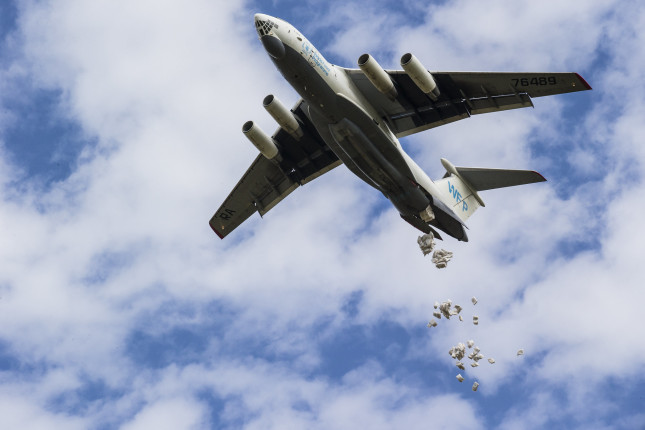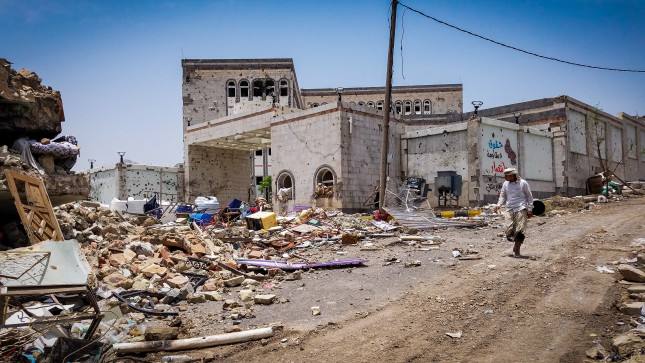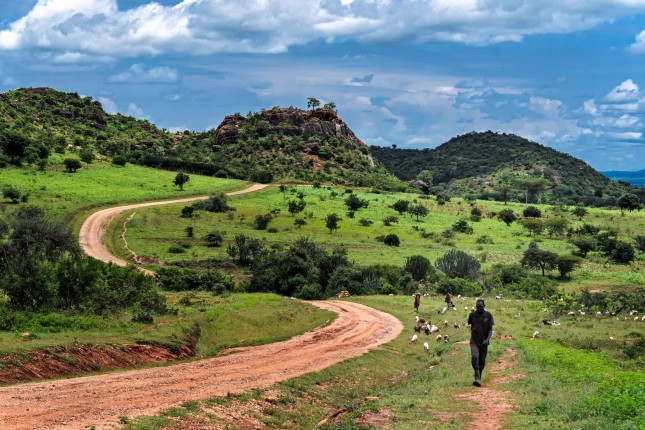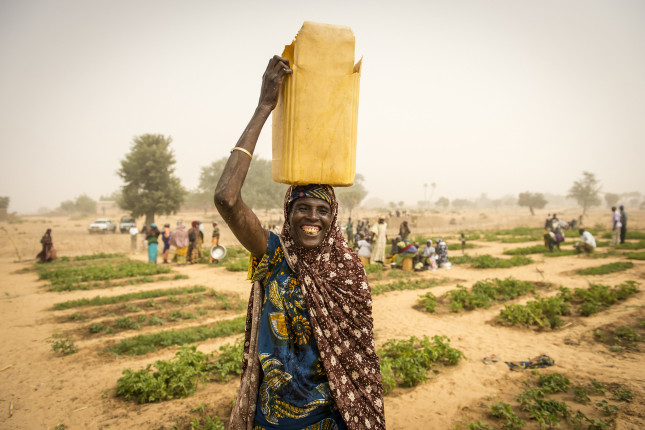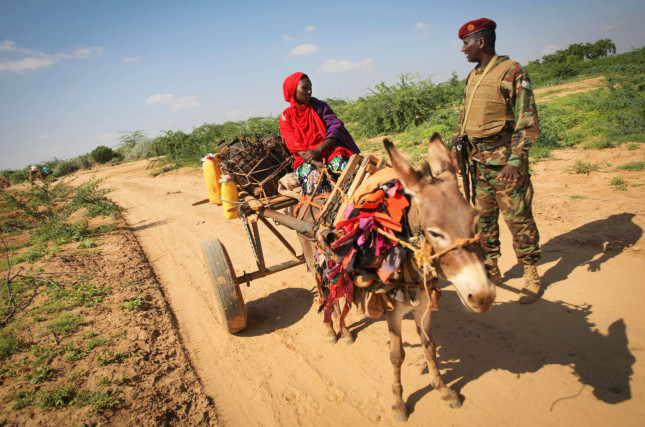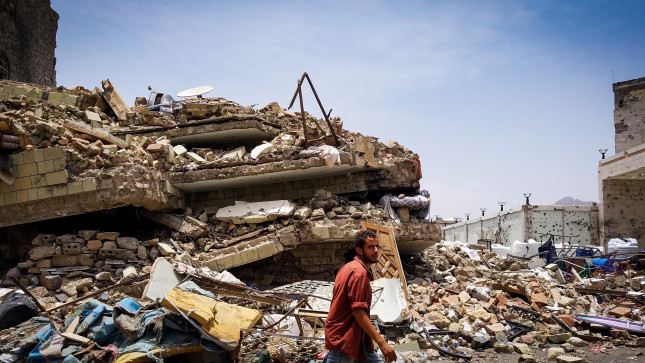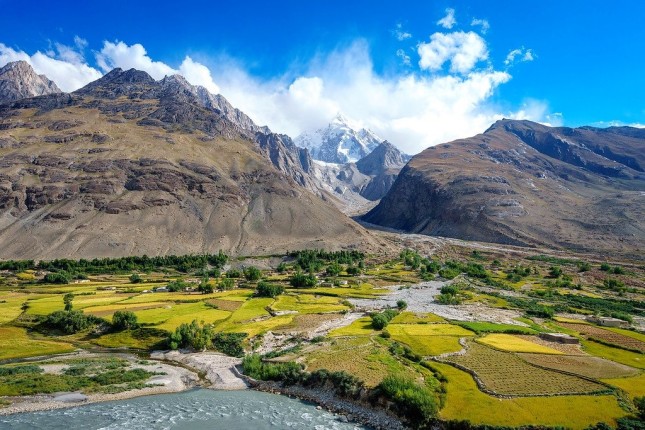-
Climate Change, Armed Conflict and Humanitarian Organizations: Defining Their Role, Greening Their Response
›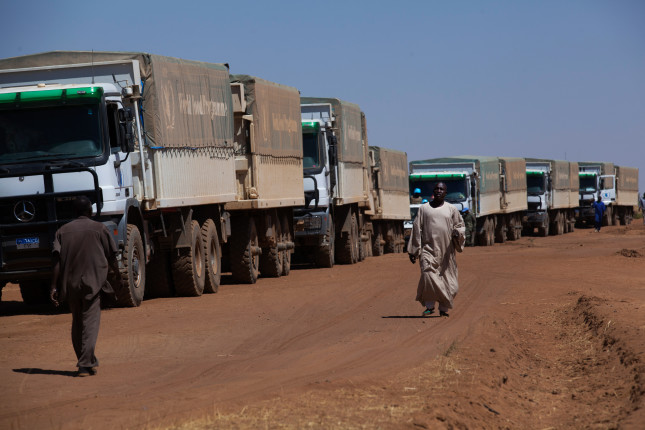
Humanitarian actors play a critical role in responding to climate-related crises, armed conflict, or a combination of both. Their response comes with an environmental cost. Humanitarian staff air travel, for instance, represents a significant source of carbon emissions and humanitarian logistics remain heavily dependent on fossil fuels. As the demand for humanitarian response climbs and countries increase their commitments to curb climate change, a question arises: Can humanitarian organizations mitigate their environmental impact and remain effective in responding to the consequences of armed conflict and climate impacts?
-
Feeding Peace
›
The impact of conflict on food security is well documented. But does food security and feeding the hungry really contribute to peace, or is it an exaggeration? Some argue that food insecurity can contribute to political instability and renewed violence in conflict-affected environments. In contrast, others say that brokering peace is a complex process, determined by many variables. To explore this question, this blog describes the instrumentalization and weaponization of food insecurity in conflict, addresses the role of humanitarian interventions, and the key role of government in building lasting change.
-
Towards Better Protecting the Environment in Armed Conflict
›
Environmental dimensions of armed conflicts
Years of armed conflict have devastated Yemen’s environment, contributing to one of the worst humanitarian crises in the world. Attacks on water infrastructure cut off thousands of people from access to safe drinking water, exacerbating a cholera outbreak that has caused an estimated 4,000 deaths since April 2017. Fighting also damaged Yemen’s agricultural infrastructure, contributing to the food insecurity of an estimated 16.2 million people.
-
“Land is Now the Biggest Gun”: Climate Change, Conflict, and the Telling Case of Karamoja, Uganda
›
Whether and how climate change drives conflict has driven considerable debate over the past decade. Yet understandings of climate-conflict remain general, and in many respects, unsettled. A recent assessment of potential future directions for climate-conflict research highlights the need to go beyond generalities and deepen insight into the contextual mechanisms that link climate change to conflict. That type of knowledge requires in-depth studies that trace climate-conflict dynamics in particular places and times. In an article recently published in Climate and Development, I examine how climate change alters conflict outcomes and vulnerability in Karamoja, Uganda. The case offers direct insight into both why the climate-conflict relationship can be so difficult to interpret and also the need to broaden conceptualizations of the climate-conflict relationship.
-
Developing a Shared Narrative on Climate Change, Fragility, and Peacebuilding
›
“Addressing the link between climate, conflict, and environment is a critical piece of the new USG framework for addressing fragility, and, as the Biden administration scales up its efforts to center climate change in its foreign policy and national security agendas, it’s going to be essential to consider the linkages between climate action and opportunities to build peace,” said Joe Hewitt, Vice President at the U.S. Institute of Peace during a recent event co-hosted by the Wilson Center and the U.S. Institute of Peace on the importance of integrating climate change responses, conflict prevention efforts, and peacebuilding.
-
Why We Need a Climate Security Course-Correction for Stability in the Sahel
›
Not only is the Sahel highly vulnerable to the impacts of climate change, but it is also one of the regions where climate change is most likely to undermine security and trigger violent conflict. Now more than ever, climate security risks must be effectively integrated into stabilisation and peace operations in order to achieve stability in the region.
-
Climate Change and Terrorism
›
Climate change is a defining global issue of our time. In a recent address to the UN Security Council, John Kerry, the U.S. presidential envoy for climate, remarked that climate change is “the challenge of all of our generations.” An important dimension of the challenge presented by climate change concerns its implications for state and human security.
-
A Land Like No Other: Afghanistan’s Post-Conflict Ecotourism Potential
›
Stunning cobalt-blue lakes with natural travertine dams in Band-e-Amir, the pristine, soaring Pamir Mountains, through which some of the world’s last snow leopards prowl—far from the simplistic, violent, and drab images preferred by the media, Afghanistan is a beautiful and multifaceted nation. Lonely Planet once described Afghanistan as a “vastly appealing country.” Having married into an Afghan family many years ago, I can attest that the culture is also extremely hospitable. Welcoming tourists to visit their beautiful nation is a logical extension of the Afghan culture.
Showing posts from category conflict.


